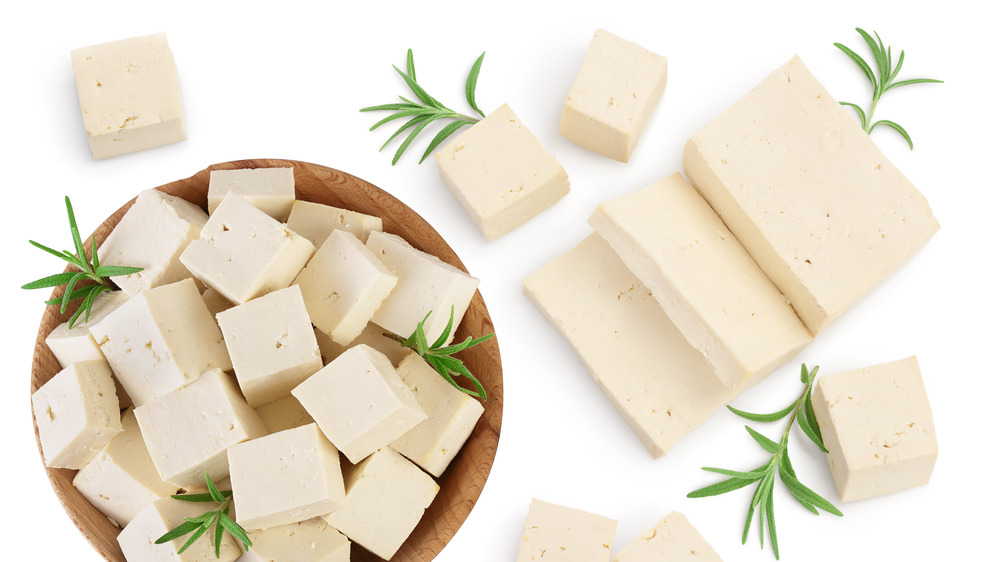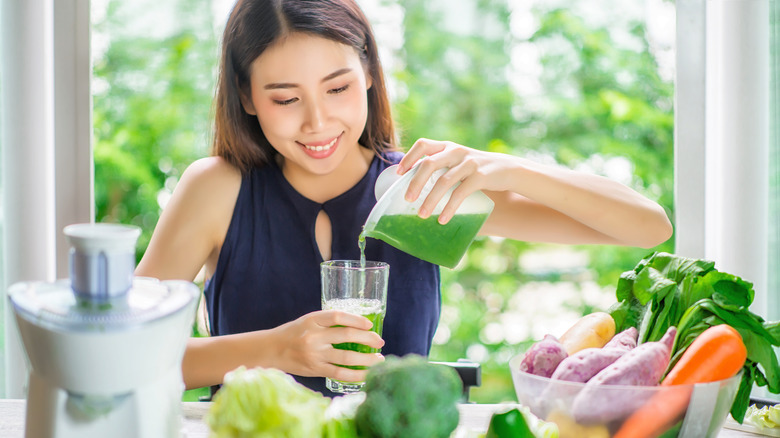This Is How Vegan Cheese Is Really Made

Vegan cheese is often seen as a healthier, more environmentally-friendly alternative to traditional cheese. But how is it really made? Most vegan cheese is made from a combination of plant-based oils, nuts, and soy. The ingredients are blended together and then formed into a cheese-like shape. The cheese is then aged, usually in a cool, dark place, to allow the flavors to develop. Vegan cheese can be made at home, but it's also available commercially. Some of the most popular brands of vegan cheese include Daiya, Follow Your Heart, and Violife. So, what does vegan cheese taste like? It depends on the type of cheese and the brand, but in general, vegan cheese has a milder flavor than regular cheese. It's also lower in fat and calories, and it's often lactose-free and gluten-free. If you're looking for a dairy-free cheese alternative, vegan cheese is a great option. It can be used in all the same ways as regular cheese, and it's a delicious way to enjoy your favorite foods without all the guilt.
Does vegan cheese taste as good as the dairy kind?
I'll admit it, I was a cheese skeptic. I thought there was no way that vegan cheese could ever taste as good as the dairy kind. I mean, how could it? It's missing the key ingredient: milk! But I decided to give it a try, and I'm so glad I did. Because vegan cheese is delicious! It's creamy and rich, and it has all the flavor of traditional cheese. Plus, it's good for you! Vegan cheese is made from plant-based ingredients, so it's cholesterol-free and low in saturated fat. It's also a great source of protein and calcium. So if you're looking for a delicious, healthy cheese option, vegan cheese is the way to go. Give it a try, and you'll be surprised at how good it is!
Recommended
NEXT UP
Green Juice Isn't As Healthy As You Think. Here's Why

Green juice has been all the rage in recent years, with everyone from celebrities to health gurus touting its benefits. But is green juice really as healthy as everyone claims? Here's a closer look at why green juice isn't as healthy as you might think. For starters, green juice is often loaded with sugar. Even if you're juicing your own fruits and vegetables, the natural sugars can add up quickly. And if you're buying green juice from a store or juicing bar, it's likely that the juice has been sweetened even further with added sugars. Too much sugar can lead to weight gain, insulin resistance, and other health problems. What's more, green juice is often lacking in protein and fiber, both of which are important for keeping you feeling full and satisfied. And then there's the issue of vitamins and minerals. While green juice does contain some vitamins and minerals, it's not a complete source of nutrition. In order to get the most benefit from vitamins and minerals, it's important to eat a variety of fruits and vegetables. So, what's the bottom line? Green juice isn't as healthy as you might think. If you're looking for a nutritious beverage, stick to water or unsweetened tea. And if you're looking for a way to add more fruits and vegetables to your diet, eat them whole instead of juicing them.
Green juice may contain added sugars
Green juice is all the rage these days, but did you know that many of them contain added sugars? That’s right, even though green juice is marketed as a healthy alternative to sugary drinks, many of them actually contain more sugar than a can of soda! So, why are green juices so sugary? Well, it’s because many of the fruits and vegetables that are used to make green juice are actually quite sweet. And, when you add in sweeteners like honey or agave nectar, the sugar content of green juice can really add up. So, what’s the bottom line? If you’re looking for a healthy alternative to sugary drinks, green juice might not be the best choice. Instead, opt for a green smoothie or an unsweetened green tea.


